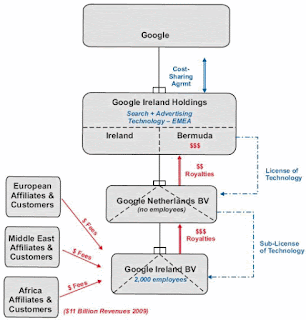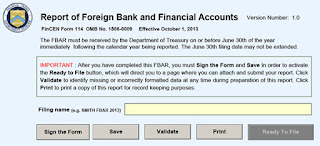 On May 26, 2017 we posted Last Chance To Come Clean ... Automatic Exchange of Information Reporting Is Imminent! where we discussed that CRS participating jurisdictions began to exchange information in 2017 and returns where required to be submitted by May 31, 2017, including Crown Dependencies and Overseas Territories.
On May 26, 2017 we posted Last Chance To Come Clean ... Automatic Exchange of Information Reporting Is Imminent! where we discussed that CRS participating jurisdictions began to exchange information in 2017 and returns where required to be submitted by May 31, 2017, including Crown Dependencies and Overseas Territories. We also provided a List of countries who have agreed to share information. Financial institutions, for example, banks, building societies, insurance companies, investment companies, will provide information on non-UK residents with financial accounts and investments in the UK to HM Revenue & Customs (HMRC). HMRC will share this information with the relevant countries. Information for financial institutions.
Instead, the U.S. receives information pursuant to the IGAs executed under FATCA, another form of automatic exchange of information.
Under FATCA, foreign jurisdictions generally report:
- Name,
- Address,
- Taxpayer identification number (TIN),
- Account number,
- Account balance or value,
- Gross amounts paid to the account in the year and
- Total gross proceeds paid or credited to the account.
Under CRS, the signatories receive similar information, as well as, date and place of birth of the individual account holders.
For entity accounts where one or more controlling persons are reportable persons, CRS require the institution to report the:
- Name,
- Address,
- Country(s) of residence, and
- TIN of the entity.
as well as the:
- Name,
- Address,
- Country(s) of residence,
- TIN and
- The date and place of birth of each reportable person.
Other options include:
- Specific requests for information (requests pursuant to tax treaties, TIEAs, MLATs, etc.),
- Simultaneous exchanges,
- Spontaneous exchanges, and
- Informal exchanges, etc.
So what is the impact of CRS on US Taxpayer's Foreign Investments?
- Unless and until the US signs on to the OCED CRS reporting regime, the is no automatic reporting of information to the IRS from treaty partners who have received information from 3rd countries pursuant to CRS .
- The US will get its automatic information solely from FATCA and IGAs with each individual country and
- During actual tax audits or criminal prosecutions , the IRS can use specific requests for information (requests pursuant to tax treaties, TIEAs, MLATs, etc.), simultaneous exchanges, spontaneous exchanges, informal exchanges, etc.
Deciding which tool to use often depends on the nature of the IRS investigation and the particular facts and circumstances of the case. For example, MLATs are generally used to gather and exchange information in Criminal Investigations.
So while things have changed a lot in the past several years (FATCA, CRS, BEPS, etc.), unless and until the US signs on to CRS, which currently appears unlikely, it will have to look exclusively to FATCA and their IGAs with each separate country, which should be more than sufficient, to obtain information regarding foreign holdings of US taxpayers.
Despite the fact that the US does not participate in CRS and that US companies are not in scope of CRS, US companies and their subsidiaries, certainly the ones that are based in or have accounts or investments in countries which participate in CRS, will have to be classified and documented for CRS purpose. So CRS does impact US companies who have subsidiaries or branches in tax favorable countries.
US companies should reevaluate their current structures to determine whether they will be able to defend their royalty stripped out to Luxembourg from others CRS member nations, their interest, strip out to Ireland from other CRS member nations and other tax favorable payments from CRS member nations , which were prior to CRS, unknown by the country where the payments were being made and deducted.
Since there is no CRS equivalent of W-9/W-8-Ben-E documentation, US companies will have to deal with a variety of forms in various foreign languages and processes to make their subsidiaries CRS compliant.
Read more at: Tax Times blog

























